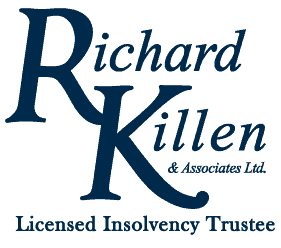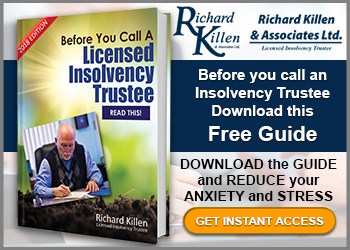Is Your Canada Emergency Response Benefit (CERB) Safe from Wage Garnishment
Posted on: April 24, 2020Posted in Advice from Richard, Credit, Financial Advice | Comments Off on Is Your Canada Emergency Response Benefit (CERB) Safe from Wage Garnishment

The Canadian government has created the COVID-19 Emergency Response Act in response to the COVID-19 global crisis. Under this Act, workers all across Canada who have lost their income from the COVID-19 pandemic will receive financial support payments in the form of the Canada Emergency Response Benefit (CERB). In fact, as of this writing, CERB payments are now being released and many of our fellow Canadians are starting to see this in their bank accounts. The CERB payments will provide $2,000 a month for up to four months.
The CERB covers millions of suddenly unemployed workers, which includes those who have lost their jobs, are not being paid due to COVID-19, those who have become sick or are quarantined and cannot work because of the coronavirus outbreak, as well as people who are taking care of someone who is sick with COVID-19 and working parents who must stay at home to care for their kids because of school closures due to the COVID-19 lockdown. The CERB financial support is also available to self-employed and contract workers not eligible for E.I.
Under the Act, families with children will also be provided financial assistance of $300 increase per child only for the year 2019-2020 through the Canada Child Benefit (CCB), which will be given in the scheduled CCB payment in May.
Can CERB Payments Be Garnished (seized by a creditor)?
For those who’ve had a wage garnishment on their salary before losing their job, and are qualified to receive these support payments, you might be wondering whether the garnishments will continue and if these benefits are subject to a garnishment too. Additionally, can CCB be garnished too?
The general answer is no, but there is a specific exception to be careful about.

The COVID-19 Emergency Response Act, under which the Canadian Emergency Response Benefit (CERB) and the temporary increase of the Canada Child Benefit was created, states the following:
- These support payments are not considered income or property in bankruptcy.
- These support payments cannot be assigned or given as collateral for a loan.
- These support payments cannot be garnished.
- These support payments cannot be kept by the right of set-off by the government for government debts.
To sum it up, under the COVID-19 Emergency Response Act, CERB payments as well as the temporary additional amount from the CCB cannot be garnished as they are considered financial assistance provided by the government and are meant to help you through this difficult financial time. These support payments do not fall under income payments, which are regular payments made by an employer to an employee. These support payments should solely benefit the recipient, not anyone else, which in the case of a wage garnishment, would benefit the lenders. Therefore, even though you have a wage garnishment in effect, you are allowed to keep the full amount you receive from your Canada Emergency Response Benefit and CCB one-time increase.
If a lender or a debt collector threatens you with a wage garnishment and attempts to collect money from your benefit payments they will be unable to do so. Thus, garnishment of wages in Canada can only be deducted from the money you make with your job, and thus requires the your employer’s cooperation.
The exception – when these support payments get deposited into your bank account they are fair game for seizure by your creditors. Once it’s in the bank it is no longer covered by the Act’s protection. It is just money in the bank.
Now a creditor (other than CRA) has to get a judgment against you first, from the court. But then they can execute the judgment by seizing money from your bank account. CRA can do the same thing without bothering to go through the courts by suing you.
One exception to what was said above is if you the money goes into your bank account with Bank A and you also owe Bank A on a line of credit or credit card or personal loan. They can seize your deposit by going to court first.
Talk to a Licensed Insolvency Trustee If You Are Worried About Creditors
As the coronavirus shutdown leads to layoffs across Canada, we see unemployment rising and unpaid debt accumulating. Fortunately, you can rely on your Canada Emergency Response Benefit (CERB) support payments to fully provide a safety net during the COVID-19 crisis, at least for a few months. So, be smart with your money during this challenging economic time.
But, if you are worried about a possible garnishment order from your creditors, especially if you start to fall behind on your payments during this period of health crisis, talk to us and we can provide you with the best information you can get on how you can best deal with wage garnishment in Brampton. All your options, including of course what they call your non-statutory options: bankruptcy and proposals.
We at Richard Killen & Associates are committed to serving you throughout this COVID-19 global emergency. We are still here to offer you all our services: free consultation, debt counselling, and, of course, going forward with a bankruptcy or proposal if you decide that’s what you need to do.
You can contact us by telephone at 1-888-545-5365 for a free consultation now. Or you can email us at lawrence@killen.ca or brampton@killen.ca , or simply check out our website at www.rkillen.ca.
Above all, stay safe.










